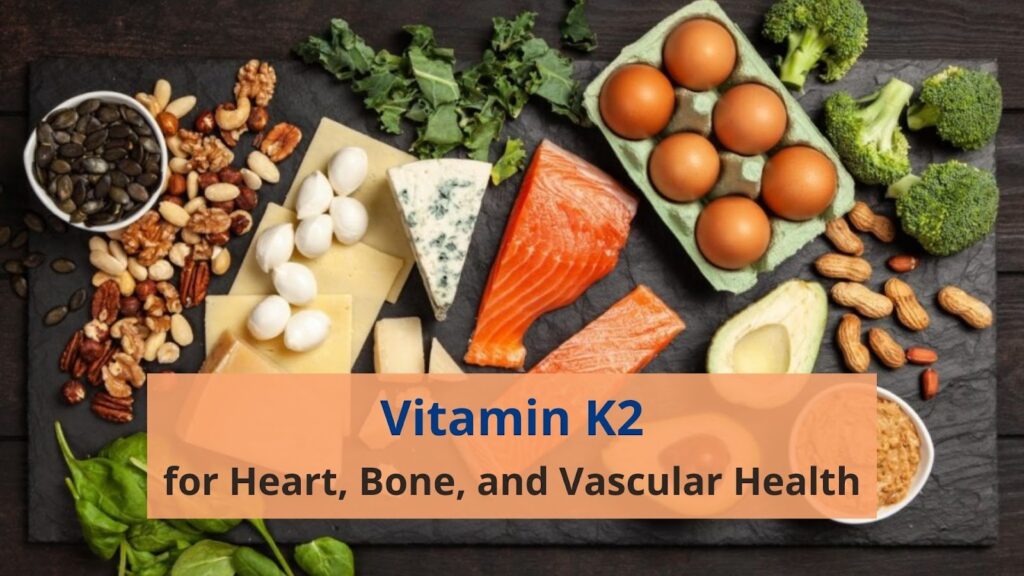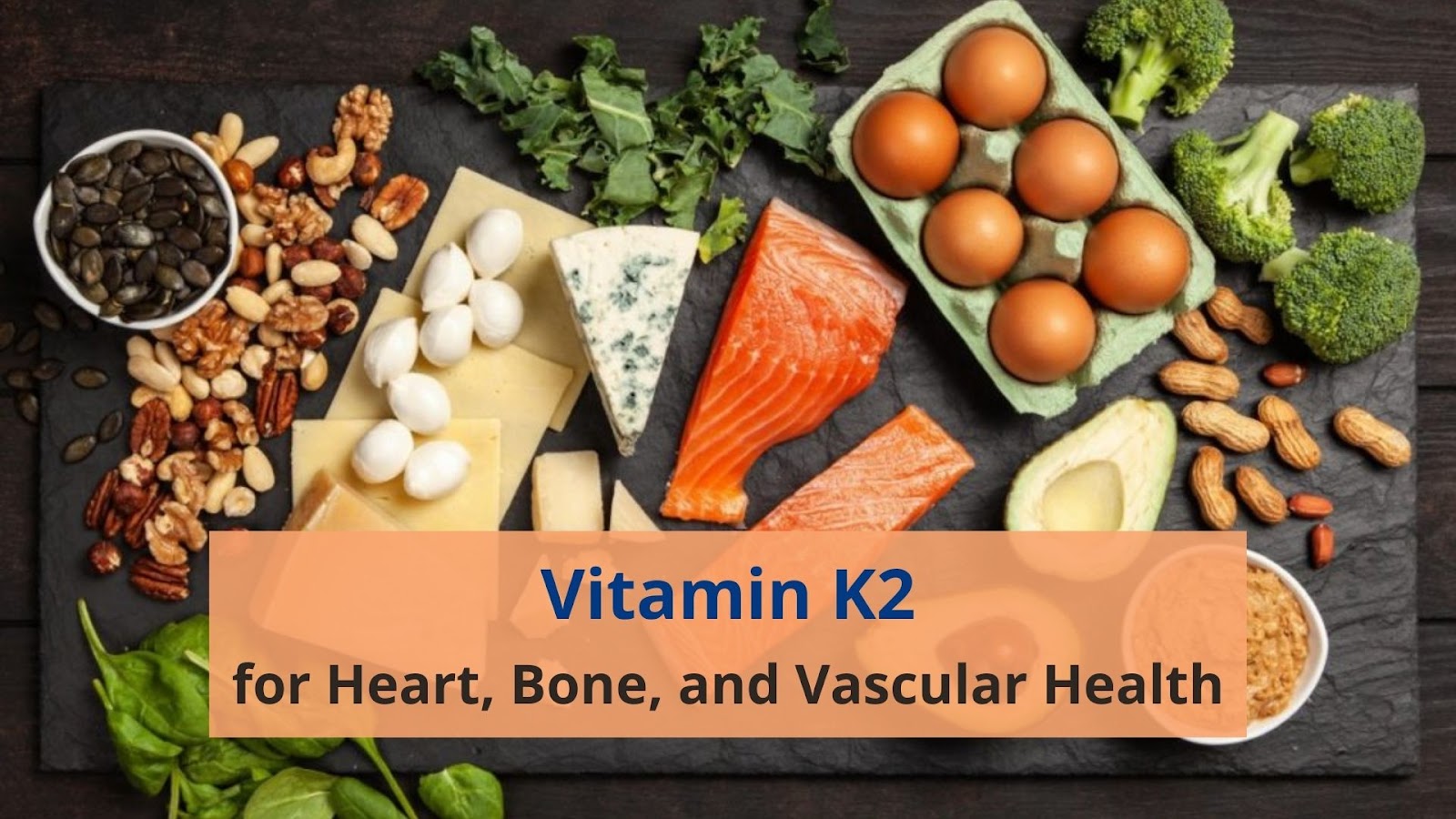Vitamins D and K2 are two essential nutrients that play critical roles in supporting overall health and well-being. While they have distinct functions in the body, research suggests that these vitamins work synergistically to optimize several health outcomes.
we’ll explore the roles of Vitamins D and K2 in the body, their potential health benefits, and how they work together to support optimal health.
What is Vitamin D?

Vitamin D is a fat-soluble vitamin that plays a crucial role in maintaining healthy bones and teeth by helping the body absorb calcium. It also supports immune function, muscle health, and brain health. Vitamin D is produced by the body when the skin is exposed to sunlight and can also be obtained from food sources such as fatty fish and fortified dairy products.
What is Vitamin K2?

Vitamin K2 is a fat-soluble vitamin that plays a key role in regulating calcium in the body. Specifically, Vitamin K2 activates a protein called osteocalcin that helps to bind calcium to bones and teeth, preventing it from accumulating in soft tissues and arteries. Vitamin K2 is found in animal products such as egg yolks, liver, and dairy products, as well as in fermented foods like natto.
How do Vitamin D and Vitamin K2 work together?
While Vitamin D and Vitamin K2 have distinct functions in the body, they work synergistically to optimize several health outcomes. Here are some ways they work together:
- Bone Health: Vitamin D helps the body absorb calcium, while Vitamin K2 helps direct calcium to bones and teeth, preventing it from accumulating in soft tissues and arteries. Together, they help support strong and healthy bones.
- Cardiovascular Health: Research suggests that Vitamin D and Vitamin K2 may work together to support cardiovascular health by reducing inflammation and improving blood vessel function.
- Immune Function: Both Vitamin D and Vitamin K2 play critical roles in supporting immune function. Vitamin D helps regulate the immune response, while Vitamin K2 activates proteins that help fight off infections.
- Brain Health: Emerging research suggests that Vitamin D and Vitamin K2 may play important roles in brain health and cognitive function.
What are the potential health benefits of Vitamin D and Vitamin K2?
- Bone Health: Vitamin D and Vitamin K2 support healthy bones and teeth by regulating calcium metabolism and preventing calcium from accumulating in soft tissues and arteries.
- Cardiovascular Health: Research suggests that Vitamin D and Vitamin K2 may help reduce the risk of cardiovascular disease by improving blood vessel function and reducing inflammation.
- Immune Function: Both Vitamin D and Vitamin K2 play critical roles in supporting immune function and reducing the risk of infections.
- Brain Health: Emerging research suggests that Vitamin D and Vitamin K2 may help support cognitive function and reduce the risk of neurological disorders.
Some of the best artificial sources:
https://amzn.to/3It3bMB
Sources:
- Vitamin D Fact Sheet for Health Professionals. National Institutes of Health. https://ods.od.nih.gov/factsheets/VitaminD-HealthProfessional/.
- Vitamin K Fact Sheet for Health Professionals. National Institutes of Health. https://ods.od.nih.gov/factsheets/VitaminK-HealthProfessional/.
- Shea MK, Booth SL. Vitamin K and vitamin D status: associations with inflammatory markers in the Framingham Offspring Study. Am J Epidemiol. 2010;171(10): 1202–1209. doi:10.1093/aje/kwq067.
- Jhee JH, Kim H, Park S, et al. Vitamin D deficiency is significantly associated with depression in patients with chronic kidney disease. Am J Clin Nutr. 2021;113(1):187


